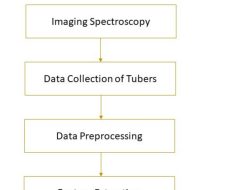Danish Researchers Develop AI Model to Predict Mortality

Researchers at the Technical University of Denmark (DTU) have unveiled an artificial intelligence model that predicts the estimated time of death for individuals. The model, a brainchild of Professor Sune Lehmann, functions akin to the AI used in Chat GPT, but it processes sequences of significant life events rather than language to make predictions. The AI model extends its predictive capabilities to Denmark’s entire population, a remarkable demonstration of its scale and potential.
AI Predicts Mortality
Machine learning algorithms have been instrumental in predicting mortality rates in healthcare settings, such as ICUs and hospitals. These predictions are formulated by analyzing health records and patient data, with performance metrics recording an impressive AUROC range of 78% to 92%. The new AI model developed at DTU brings an added dimension to this field, using life events rather than medical data to predict outcomes.
How the Model Works
The AI model works by processing extensive data to learn about the relationships between various life events and outcomes. Its primary goal is to predict when individuals might die based on the sequences of significant events in their lives. The model exhibited a promising accuracy rate, predicting correct outcomes in 79 out of 100 cases when tested on data from 2008 to 2016.
Factors Influencing Risk of Death
The research also unearthed specific factors associated with an increased or decreased risk of early death. Individuals in leadership roles or those with a high income exhibited a lower risk of death. On the contrary, being male, less skilled, or having a mental diagnosis correlated with a higher risk. These findings provide a fascinating glimpse into the interplay between societal factors and mortality, providing a roadmap for future research in this field.
In conclusion, this groundbreaking AI model is a testament to the potential of artificial intelligence in transforming our understanding of life and death. Although its predictive accuracy is not perfect, the AI model has exhibited better results than random guessing, demonstrating the vast potential of machine learning in predicting mortality based on life events.



